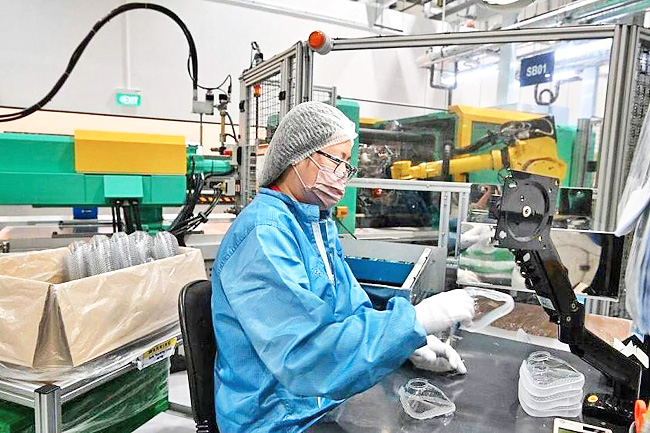ANN/THE STRAITS TIMES – Singapore’s manufacturing recession worsened in February as production shrank for a fifth straight month, according to data released by the Economic Development Board yesterday.
Factory output slumped 8.9 per cent year on year in February, after falling a downwardly revised 3.1 per cent in January.
February’s contraction was worse than the 1.9 per cent fall expected by analysts in a Bloomberg poll.
Excluding the volatile biomedical manufacturing segment, output fell 4.9 per cent.
Biomedical manufacturing was the hardest hit, with output tumbling 33.6 per cent in February on a year-on-year basis.
The medical technology segment grew 13.7 per cent with higher export demand for medical devices. But pharmaceuticals output fell 59 per cent, on account of a different mix of active pharmaceutical ingredients being produced compared with a year ago.

The key electronics cluster saw output contract by 10 per cent year on year, worse than the 4.8 per cent drop in January. Electronics accounts for about 40 per cent of Singapore’s export-driven manufacturing sector.
Chemicals production shrank 14.9 per cent.
The other chemicals segment grew five per cent with higher output of fragrances, while the petroleum segment rose two per cent on higher demand for jet fuel as air travel continues to rise.
However, the specialities segment dropped eight per cent due to lower production of mineral oil and food additives. The petrochemicals segment also saw output fall 32.9 per cent on the back of weak market demand and plant maintenance shutdowns.
Singapore’s three other manufacturing clusters saw growth in output.
The transport engineering sector saw an increase in output of 22.9 per cent. The marine and offshore engineering segment expanded 41.0 per cent, supported by a higher level of activities in the shipyard as well as increased production of oil and gas field equipment. The aerospace segment grew 26.1 per cent with higher demand for aircraft parts and more maintenance, repair and overhaul jobs from commercial airlines on the back of increased global air traffic.
Precision engineering and general manufacturing saw output rise by 4.9 per cent and 0.5 per cent respectively.



















































